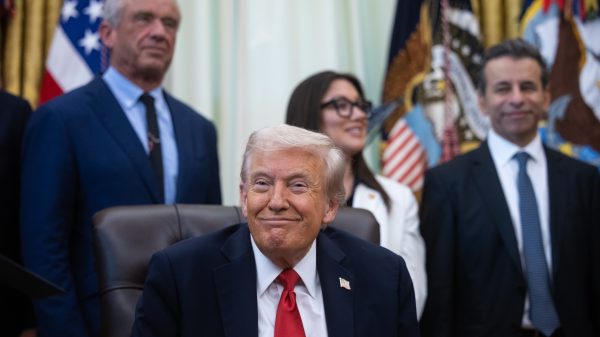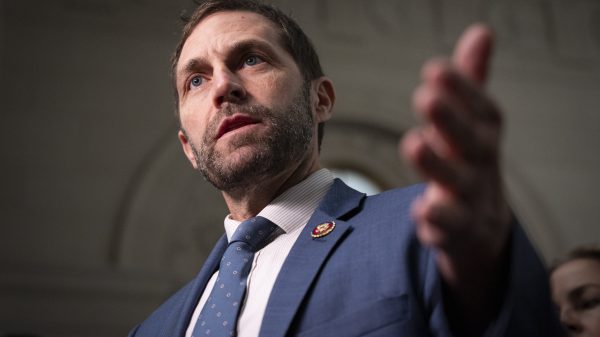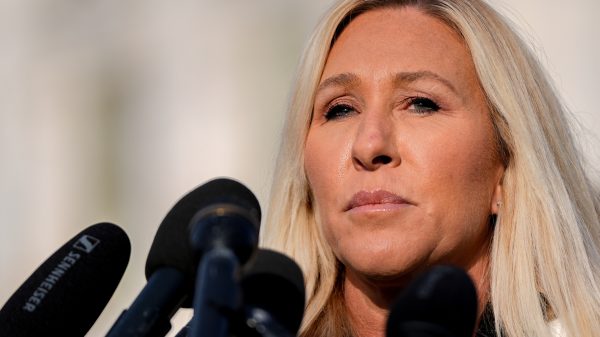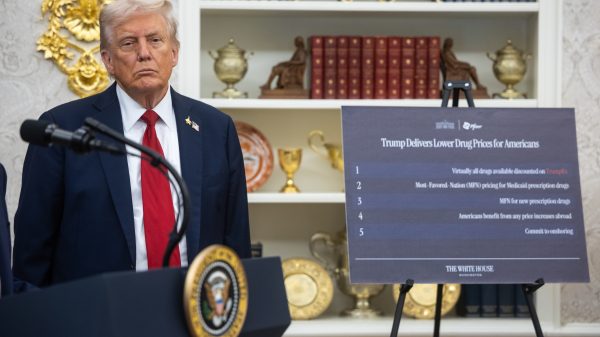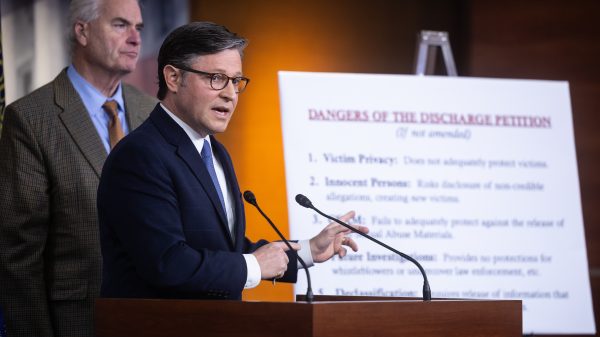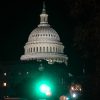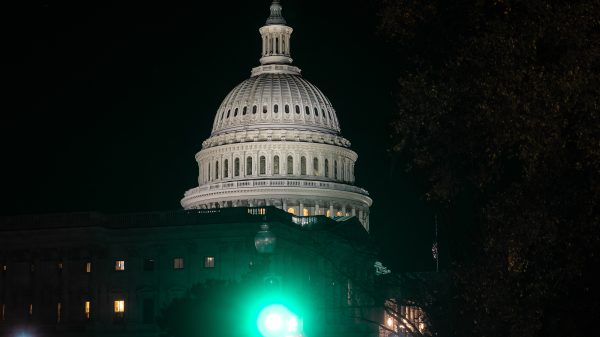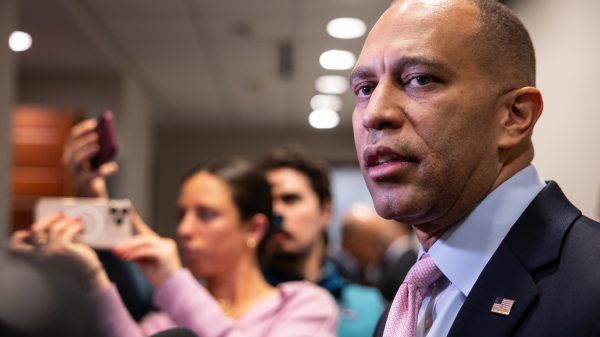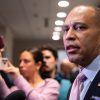The White House’s silence on how its health care plan deals with abortion is causing a headache for Republicans on Capitol Hill.
For many GOP members, an expansion of abortion restrictions in Obamacare is a must-have. But the White House’s decision to leave the issue out of its tentative framework caught Republicans off guard, leaving them in the dark about whether the president would ultimately stake out a position publicly, according to two aides granted anonymity to disclose private discussions.
The fight over the Hyde amendment, which bars federal funding for abortion, is just one of many landmines that need to be cleared before any health care deal to extend expiring Affordable Care Act subsidies can be reached. It also comes on top of GOP backlash to other aspects of the White House’s health policy framework that leaked Sunday.
“No Republican has voted for Obamacare or an Obamacare extension or expansion,” said a senior Senate Republican aide, granted anonymity to speak candidly. “Asking members to do that and not including Hyde would be impossible for many.”
The White House did not respond to requests for comment on the president’s stance.
The proposal the administration had planned to roll out this week consisted of a two-year extension of the ACA’s enhanced subsidies with new limitations favored by conservatives, such as a cutoff for people with higher incomes and a requirement that everyone pay a minimum monthly premium. But the White House gave no indication of whether it endorsed GOP lawmakers’ demand to also prohibit any insurance plan that receives a federal subsidy from covering abortion services.
Gavin Oxley, a spokesperson with Americans United for Life, said it would be helpful for the White House to publicly lay out its position on the Hyde question to give lawmakers an idea of how to proceed.
Not weighing in now, or proceeding with a plan without abortion restrictions, “would ultimately fracture the wide-reaching coalition that got President Trump re-elected,” Oxley said.
“We believe the Administration and pro-life leaders in Congress will come to the table in good faith with a plan that includes Hyde,” he continued. “But should it not, we will be prepared to reject such a plan.”
House and Senate Republicans, as well as dozens of anti-abortion groups that havespent months lobbying Congress and the White House, oppose any extension of the subsidies that doesn’t bar all insurance plans in the individual market from covering abortion. One of the people granted anonymity to speak candidly said that including the abortion funding restrictions was a “red line” for a broad swath of Republicans.
“We don’t have any details on this plan, but Senator Young supports Hyde protections and believes they should apply to any taxpayer funded health care spending,” said Leah Selk, spokesperson for Republican Sen. Todd Young of Indiana.
The hard line for Republicans creates a narrow window for bipartisan agreement, if any, before the end of the year, when the subsidies are set to expire and cause premiums to skyrocket. Democrats, whose votes are needed to clear the filibuster in the Senate to advance most legislation, have declared that abortion restrictions would be a non-starter in ongoing negotiations.
“Instead of working with Democrats to fix the health care crisis they created, Republicans now want to hold women’s health care hostage and force their radical agenda on the American people,” said Sen. Ron Wyden of Oregon, the top Democrat on the Finance Committee that has jurisdiction over much of the sprawling U.S. health system, in a recent floor speech. “I have one thing to say to that: not on my watch.”
Likely cognizant of this political reality, the White House’s decision to sidestep the abortion question was intended to allow the administration to avoid drawing attention to an issue that could have immediately jeopardized the plan’s viability, said a Republican aide with knowledge of the discussions – even if its silence has actually had the opposite effect.
“Look, it’s no secret that this administration is not rushing to put a lot of political capital on the issue of abortion if they can avoid it,” said Patrick Brown, a fellow with the conservative think tank Ethics and Public Policy Center, which has been part of the roiling debate over abortion restrictions in Obamacare. “It’s not something I think they have any interest in highlighting.”
The abortion standoff is just one of many factors complicating a proposed deal to extend insurance subsidies. Deep divisions remain around who should qualify for such subsidies, how generous they should be, and what kind of health services are covered.
Any agreement would need Trump’s blessing, giving Republicans political cover to vote for an extension of the health reform law they have raged against for more than a decade. But given this difficult landscape, conservative lobbyists are skeptical that passage is possible even if Trump endorsed abortion restrictions. Those in close contact with lawmakers say it’s unlikely an extension of the subsidies could win 60 votes in the Senate — or even 50.
“It’d be very difficult, even if they do it through reconciliation,” said Tom McClusky, the director of government affairs for Catholic Vote. “On the subsidies alone, I think you have a large enough contingent on the Republican side that don’t want them renewed at all — regardless of if you can somehow miraculously figure out the protections of Hyde.”
Since its inception more than a decade ago, the Affordable Care Act has barred federal subsidies from paying for abortions, but left it up to states whether health insurance plans in the individual market could cover abortion using other funding.
Half of states have opted to ban all coverage of abortion on their Obamacare markets, including some where abortion itself is legal, like Pennsylvania and Arizona. In the remaining 25 states, abortion coverage through Obamacare is either allowed or required, though any claims paid out involving the termination of a pregnancy come from a separate account that doesn’t use any federal subsidies.
If Congress passes an Obamacare subsidy extension that includes the abortion restrictions conservatives are demanding, it would force roughly a dozen states where abortion coverage is mandatory to make a tough decision: change their laws or risk losing billions of dollars. In the states where abortion coverage is allowed but not required, it would be up to individual insurance plans whether to lose federal funding or drop abortion coverage.
After nearly a year of the Trump administration clawing power away from Capitol Hill and dictating everything from spending to military action, some anti-abortion advocates are baffled by the lack of a firm message on how the Hyde amendment’s ban on abortion funding applies to Obamacare.
“It’s in tension with this administration’s broader approach to dealing with Congress, which has been very heavy handed — sort of, ‘We are calling the shots. Sit back and let us drive,’” said Brown. “But it would be their preference to sit in the back seat on that issue specifically.”
Benjamin Guggenheim contributed to this report.






